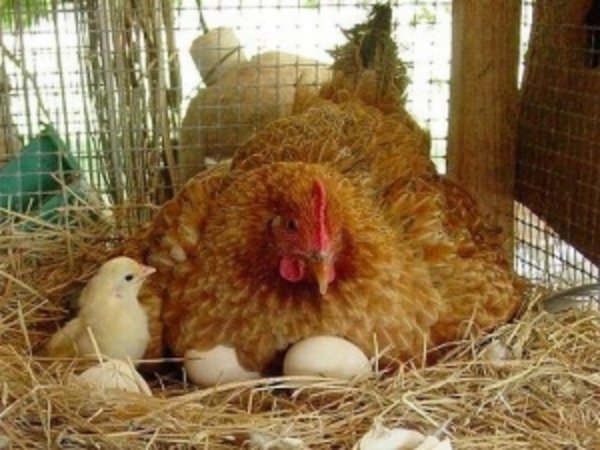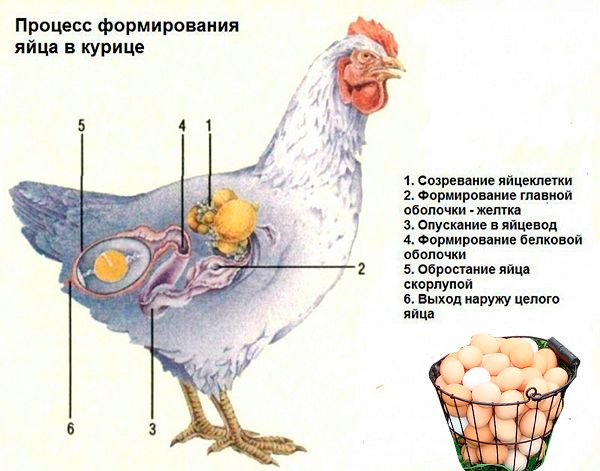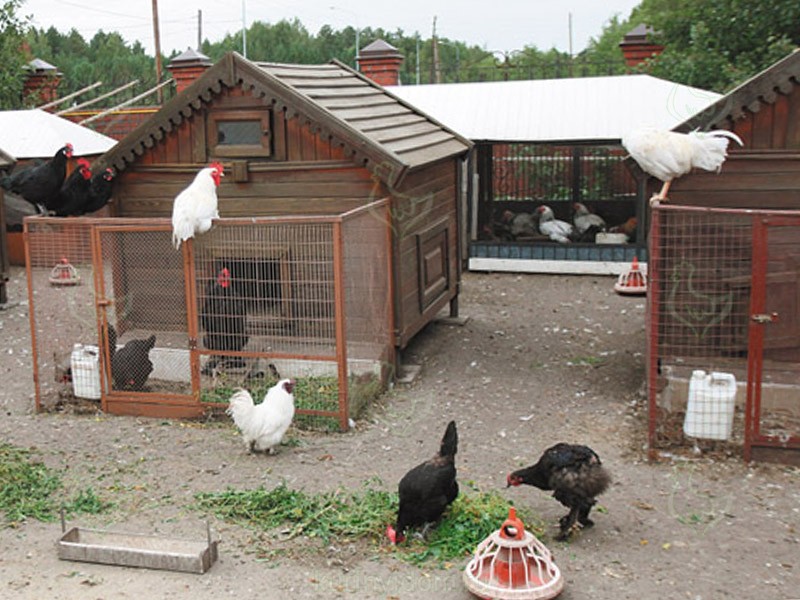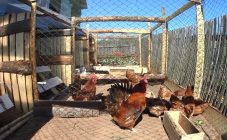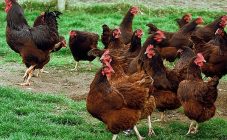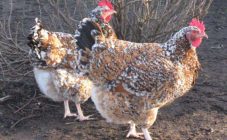Content:
In the household, you cannot do without chickens. They are kept in order to receive eggs. But it often happens that there are no eggs for a long time. At such moments, many owners have a question: "Why did the chickens stop laying?" This article will answer it.
How to properly keep poultry
For these birds, it is important that the room in which they are located is spacious. One square meter should be allocated for five layers. If you plan to breed offspring, then a rooster should live in the hen house, which is at least four years old. He is able to fertilize about a dozen females. But this factor does not at all affect the productivity of the layers themselves.
In the chicken coop, the air temperature should be at least twenty-two and not higher than twenty-five degrees. When the weather is hot outside, you need to take care of the canopy and shade the room to reduce the temperature inside.
In winter, daylight hours are extended to fourteen, or even sixteen hours by installing artificial lighting. At the same time, care must be taken to ensure that it is not too sharp. It is imperative in the winter period that walking is done for the livestock of birds with bathing in ash and sand. Thanks to this, the chickens will feel comfortable. If the females have stopped laying eggs, the reason is found out, and it is determined what to do in this case.
First of all, the conditions of their maintenance, the diet are revised, and if necessary, adjustments are made.
It must be taken into account that the menu for chickens should be as follows:
- 120 grams of grain mixture per day consists of:
- corn - forty percent of the total mass;
- wheat - twenty percent;
- barley - twenty percent;
- oats - thirty percent.
- 100 grams of boiled potatoes.
- 30 grams of mash.
- 3 grams of chalk.
- 7 grams of cake.
- gram of baker's yeast.
- 2 grams of bone meal.
- half a gram of table salt.
If the diet includes ready-made dry food for layers, then it is imperative to pour the grain mixture separately.
Adults should eat twice a day, and be sure to give dry food in the evening. In the morning they give a mash, but it should be remembered that you cannot overfeed the bird, because it will become fat and become unproductive. During the day, be sure to give gravel or shells, so the birds will process food. Stones tend to grind food in the stomach of birds, like millstones. It is important for birds to drink enough water.
In order for chickens to fully rush, their diet should be varied and full of vitamins and herbs. If the birds are swimming and fluttering, this means that they have enough food and drink.
Why chickens don't rush
If the chickens have stopped laying eggs, then experienced farmers cannot determine the reason and what to do. First of all, the reasons may be temperature drops, the length of the day or the health of the layers.
The main reasons why birds do not produce eggs:
- food and water;
- season and climate;
- light mode;
- stress;
- fatigue;
- molt.
Food and water
If the chickens do not lay well, what should be done? Improper diet may be one of the reasons. The food should contain:
- fats;
- carbohydrates;
- proteins not less than 15%;
- minerals;
- vitamins.
All of these substances must be included in the diet of the bird every day. If you change the feed, then the birds suddenly and at the same time stop rushing. When buying a new feed, you should carefully read the composition. If it differs significantly from the usual diet, then it is supplemented with the necessary substances.
Time and climatic conditions
When spring or summer comes, from May to June, hens lay the highest number of eggs. But sometimes the situation changes, and many want to know: "Why do chickens not rush in the summer and what to do?" The reason may be the high heat of the sun's rays. In this case, the birds can walk with their wings spread and breathe heavily. If this happens, then the following measures are taken:
- Chickens should drink plenty and be able to swim in the sand.
- The room must be ventilated.
- Walking is done shaded.
In winter, in order for the chickens to rush, the following measures are taken:
- First of all, you need to insulate the room in which the bird lives;
- Equip lighting that should be an extension of daylight hours;
- Make sure that the air temperature in the chicken coop does not drop below fifteen degrees;
- Give more feed than in summer;
- Drinkers should always have fresh warm water;
- Change the litter periodically;
- Give chickens vitamins.
Light mode
If you break the light regime for layers, this will have an effect on egg production. The bird is used to waking up with the first rays of the sun and falling asleep at sunset. The day must be at least twelve hours long. Everyone knows that in August the day is already getting shorter, so artificial lighting is carried out in the room to prolong it.
A decrease in daylight hours leads to the fact that chickens stop laying eggs. The reason is that a beam of light through the retina of the eyes has an effect on the bird's body. It produces a special hormone that promotes the production of eggs.
Stress
If the bird endures a stressful situation, then this can lead to a violation of egg production. The hen begins to lay few or no eggs at all. Stressful situations arise in such cases:
- An unfamiliar creature appeared in the coop;
- Chickens constantly hear extraneous noise and screams;
- The usual food is exchanged for another;
- The room is too hot or cold;
- The birds were transported to a new location.
To remedy the situation, hens are given vitamin E or vitamin C.
Fatigue
If chickens have not been laying for more than three months, then fatigue may be the reason. If they are over two years old, then several young ladies are allowed into the house. Then observation should be made. The pullets fly well, but the old hens are not, it is recommended to change the number of birds. If the young change is not happy with the clutches, then the reason lies in something else.
Molting
The chickens began to fly badly. The reason for this is molting. In autumn, with the onset of cold weather (this period falls on September, October), birds begin to change plumage. During this period, they greatly lose weight and, accordingly, egg production decreases. Do not sound the alarm, as birds spend all their energy on the intensive growth of new feathers. In order for the molt to end faster, you need to introduce high-calorie foods rich in proteins into the diet.
Moving to a new location
So that the hen does not get stressed while moving to a new house, special conditions are created for her. If the new house is close to the old one, then the birds can be accustomed to it gradually. Feed them in a new pen or let them walk near the new building. Thus, they will gradually get used to it and, when they finally move, will not experience stress.
If the move is longer, then the unpleasant sensations of the chickens can be smoothed out by a familiar environment. That is, the environment in the new house should be completely similar to the old one. In addition, the nests should be built according to the same principle that birds are used to.
Purchased chickens do not rush
If you buy birds from a poultry farm, then you should not expect that they will immediately lay eggs. First of all, these chickens must get used to the new feed, and only after they are overgrown with feathers (and chickens from the poultry farm are always practically naked), they will begin to lay. In addition, it should be borne in mind that such layers only fly for a year or a half. Then they suddenly stop. In this case, they can be safely sent for slaughter. You shouldn't expect more eggs from them.
How to increase egg production
Other factors also affect the decrease in egg production.
Diseases
In addition, laying hens can stop laying due to infectious diseases or parasite attacks, which is why chickens do not lay. The most dangerous parasites are:
- ticks;
- chewing lice;
- feather eaters;
- bed bugs.
Ticks and bugs settle in the litter and only go hunting at night. They feed on the blood of birds. They can be brought into the chicken coop by new layers, rodents, and even people themselves on shoes or clothes.
If chickens start to behave restlessly, sneeze and itch, then this is a sure sign of infection. In this case, special insecticidal preparations are used. In this case, it is necessary to process not only the birds, but also the chicken coop itself. A folk remedy for combating parasites is bathing birds in ash and sand.
There are also internal parasites that prevent chickens from laying. These are round and tapeworms. In this case, deworming is mandatory. Eggs, if carried by infected chickens, should be discarded and discarded.
Those hens that roost also stop rushing. During this period, their hormonal background completely changes. Such a hen will soon hatch chickens.
Predators can enter the coop and steal eggs, or the chickens themselves peck at them. In this case, the following folk methods can help:
- You need to pierce the eggshell at opposite ends and blow out the contents. Fill the shell with soapy water. Chickens will not like this taste and will stop drinking eggs.
- You should immediately take away the clutch and throw in the tennis balls. And thus teach a thief a lesson.
- Fill the bird's diet with protein-rich feed.
Obesity in chickens
If the chickens are obese, then they will also not lay. In this case, they need to be "put on a diet", that is, they need to be fed only twice a day. You should introduce low-calorie food into the diet and give more vitamins, more often release them into the yard for walking.
In order for the chickens to fly well, they need proper care. Therefore, you should listen to experienced farmers and follow all the rules for keeping layers.
